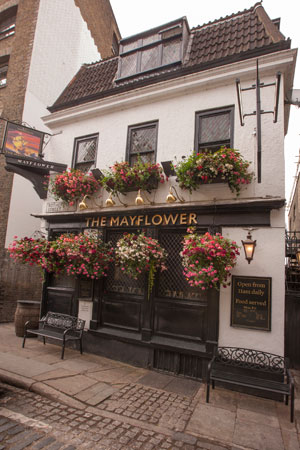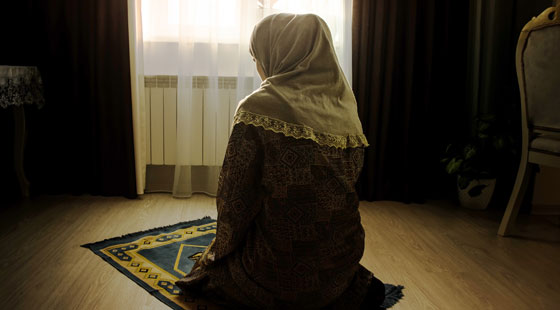Keep the faith: balancing religious commitments
Muslims working in hospitality face a tricky few weeks during Ramadan, balancing religious commitments of fasting and prayer with the physical demands of working in busy businesses. Noella Pio Kivlehan reports
Hunger, headaches, nausea, weakness, short tempers and tiredness are some of the symptoms faced by Muslims in the first few days of Ramadan as their bodies adjust to fasting.
Fasting Muslims can go without food or water for up to 16 hours a day. They don't smoke, lie, or slander during sunlight hours, and they will pray several times a day during Islam's holiest month, which this year runs from 5 May until 4 June.
But, as their bodies adapt to a new routine that is intended to ultimately lead to spiritual fulfilment, hospitality staff will also be working, surrounded by food and drink, while providing customer service until late at night.
There are no figures for Muslims working in the UK's hospitality sector. Neither
the Office for National Statistics nor the Muslim Council of Britain (MCB) keep specific records, except to confirm that Muslims make up 4.8% of the UK population of nearly 67 million. There are also no records of how many of those keep the fast. The number fluctuates as, says the MCB spokeswoman: "Many people may not fast due to health-related issues or other reasons."
But, for employers with Muslim workers, the onus is on them to look after the health and needs of their fasting staff as they would for non-fasting employees.
Fasting forethought While no official rules exist around providing for staff during Ramadan, Kate Nicholls, chief executive of UKHospitality, admits, "working around food and drink in hospitality poses additional problems."
It is, says Nicholls, up to individual businesses to devise a working relationship
during Ramadan that benefits employers and employees. She says: "An open dialogue is crucial in achieving that and we encourage our members, and the wider sector, to make sure they engage. Many hospitality businesses are already experienced in catering for their team members around Ramadan."
A number of companies The Caterer
Marriott revises staff meal times and gives evening breaks so fasting staff can eat after dark, explains Francisca Martinez, chief human resources officer for Europe at Marriott International. Accor allows for a change in job specifications to allow for a reduction in strenuous physical work, while night workers have a special breakfast before sunrise, as well as being provided with specific areas to pray.
Paid or unpaid leave for any staff observing religious festivals is allowed at Wetherspoon pubs, and rotas are arranged several weeks in advance to allow requests for specific start and finish times to be taken into consideration.
And at Marston's, arrangements are made at a local level for its 14,300 employees across its portfolio of around 1,600 pubs. At Southall-based Asian catering and event management company Greenleaf, 60% of employees observe Ramadan. The remaining staff, says company director Sammir Saroya, are considerate about eating and drinking in front of those fasting. "There are no issues with it," he says. "Staff who are fasting can come in a little bit late if need be. Depending when the fast is breaking, we would let them go home a little bit early."
Nicholls adds: "[Our members] will implement procedures to ensure staff feel comfortable in a supportive working environment during their fast."
A day during Ramadan at the Mayflower, Rotherhithe, London
As the thermometer hits 50 degrees, head chef Zoubir Ait-Dris keeps a watchful eye on his staff in the cramped kitchen of the 400-yearold Mayflower pub in Rotherhithe, London.
It is a swelteringly hot May day during the 2018 heatwave, and five out of the six chefs, including Ait-Dris, are surrounded by burning stoves and ovens. They are also observing the fasting month of Ramadan and have not had anything to eat or drink for 11 hours.
Service is relentless. For the chefs, there are still hours to go before they can eat and drink again at sunset - or iftar - at around 9.15pm.
Despite being in an oasis of water and food, Ait-Dris says: "Personally, I don't care about being around food and preparing it all day. It's just the heat. It gives you a headache and there's nothing you can do about it. The air conditioning doesn't do anything - it just blows air, affects the flames and slows the cooking."
The head chef, who came to the UK from Algeria 23 years ago, started as a kitchen porter in the Pierre Victoire chain. He says: "For most Muslims, the first days of Ramadan are the hardest: your body clock moves 24 hours forward; day becomes your night and your night your day. That's the confusion. In the daytime you're supposed to be working and eating. You've given your body a shock. Some find it tougher towards the end because their body is exhausted. During the last 10 days they have no energy to carry on."
To cope during a shift, Ait-Dris says he prefers to be busy. "Time flies and it makes you forget things. The problem is watching your speed or you'll burn all your energy. Then you reach a certain point, and that's it: enough, you're going to collapse. People will ask to go on a break, and they will nap for two hours. But nobody takes advantage."
In the days leading up to Ramadan 2018, management at the Mayflower, part of the Rotherhithe Pub Company, put out a message on the staff WhatsApp group asking those not fasting to be considerate of the chefs.
"It's bringing awareness to the other staff," says the Mayflower's manager Sueleen Berongoy. "It's like anything else, whether it's religion, sexuality or remembering that a person is pregnant so they shouldn't lift something heavy - it's humanistic common sense."
Ait-Dris adds: "I recognise that Christmas is a holy day for every Christian person.
Respect is mutual. But there is never any resentment from non-Muslim staff."
As the clock ticks to 9.15pm, the Mayflower's kitchen takes a temporary pause. They start with sips of water and dates, and then dishes are served: chorba frik, a soup mainly of lamb, or chicken with freekeh, chickpeas and sometimes vegetables, then high-protein dishes and sweets. As is the Muslim tradition, everyone, fasting or not, is invited to share.
Pub manager Berongoy has already taken pre-iftar drinks orders. She says: "I don't care if we're busy at the bar, I ask the kitchen 'what do you need to drink?' It makes such a difference. It brings the team together because it's the first time they will have had anything all day. Usually the first order is coffee."
A huge part of Ramadan is that fasting teaches patience, modesty and spirituality. When it is over, and everyone is celebrating Eid al-Fitr (the festival of fast-breaking), Ait-Dris says the feeling of completing the holy month is one of achievement. "We are happy. You have done it from start to finish.
"Usually, I'm volatile in the kitchen, but during Ramadan I'm quiet. It's not just about food and drink, it's about your other senses. It's what you say, see and hear. In Ramadan I don't swear or talk rubbish - there's no banter, because the concept of Ramadan is to be disciplined and conduct yourself in a good manner."
Ait-Dris's advice for any young Muslims in hospitality is simple: "Carry on as normal. Ramadan is for you to be more productive. It makes you stronger, even when you feel weak."
Designed for prayer
To undertake Muslim prayers, a prayer mat at qibla - the direction of the Kaaba, he sacred building at Mecca - is required, ideally in a quiet space. Having previously made do with a space in the corner of a kitchen or staff rooms, companies are increasingly providing dedicated prayer rooms for staff.
Alex Bradley, director at the Restaurant Design Association, says there has been an increase in plans for new buildings in the business and industry sector to include distinct prayer areas.
"Architects are putting these in 'dead space' - the not-sought-after space that impedes customer flow," he says. "But that also means it is a quiet space that is out of the way."
Dedicated prayer rooms can also add to staff morale, says hotel expert David Harper, managing director of Leisure Property Services, which advises on hotel properties.
"If a prayer room helps make staff happy, a hotel would be foolish not to provide one. And if it makes the staff happier, and the cost is justified by the improved morale, then such an investment by a company or group should be made."
Continue reading
You need to be a premium member to view this. Subscribe from just 99p per week.
Already subscribed? Log In












